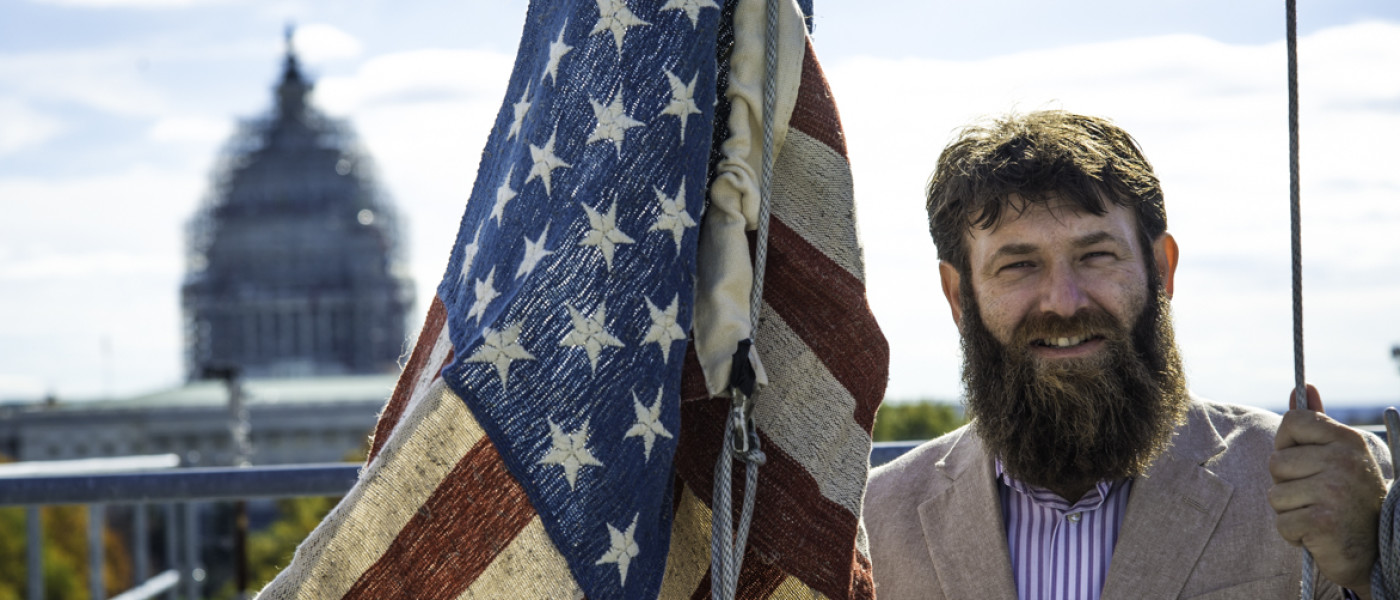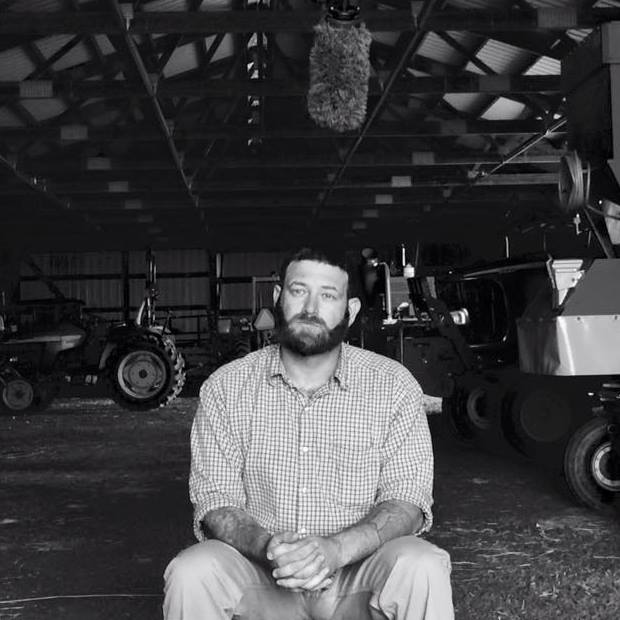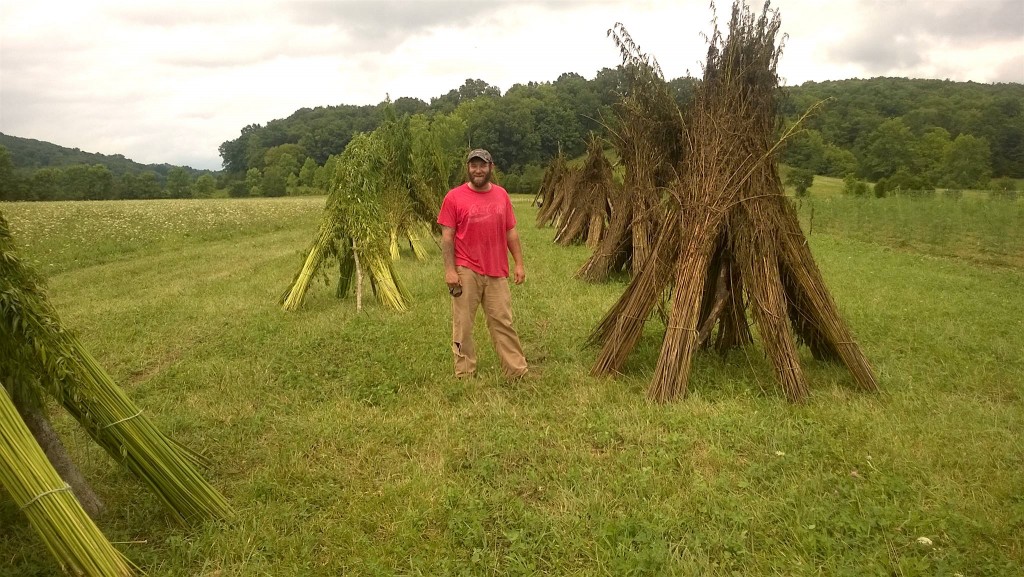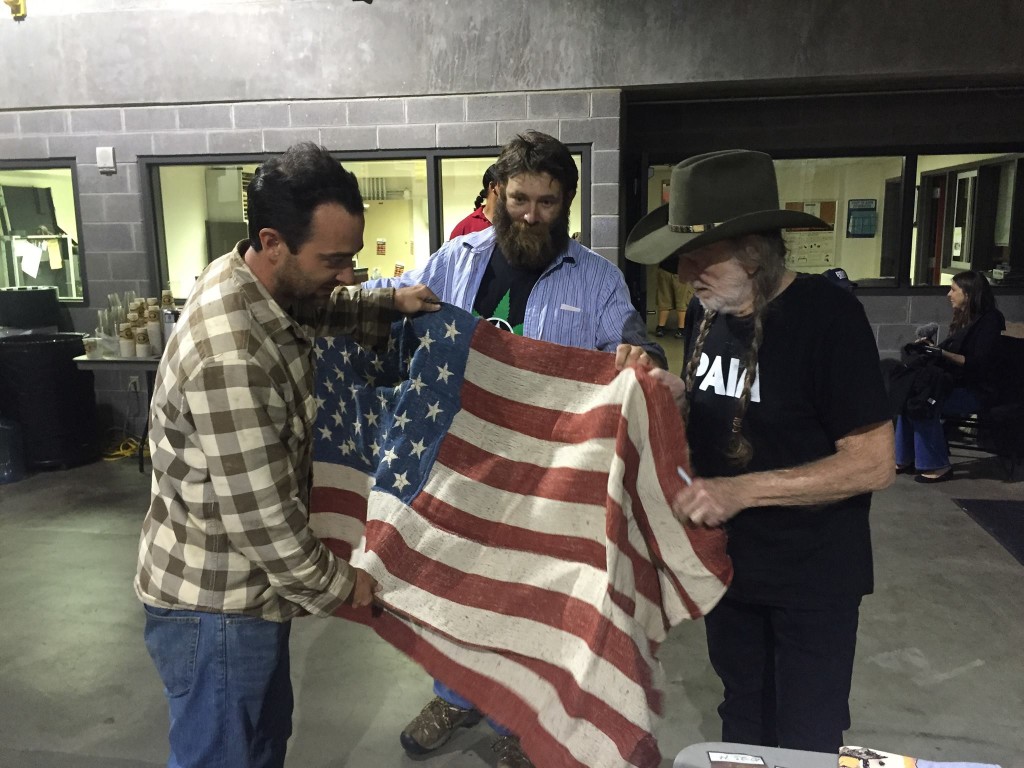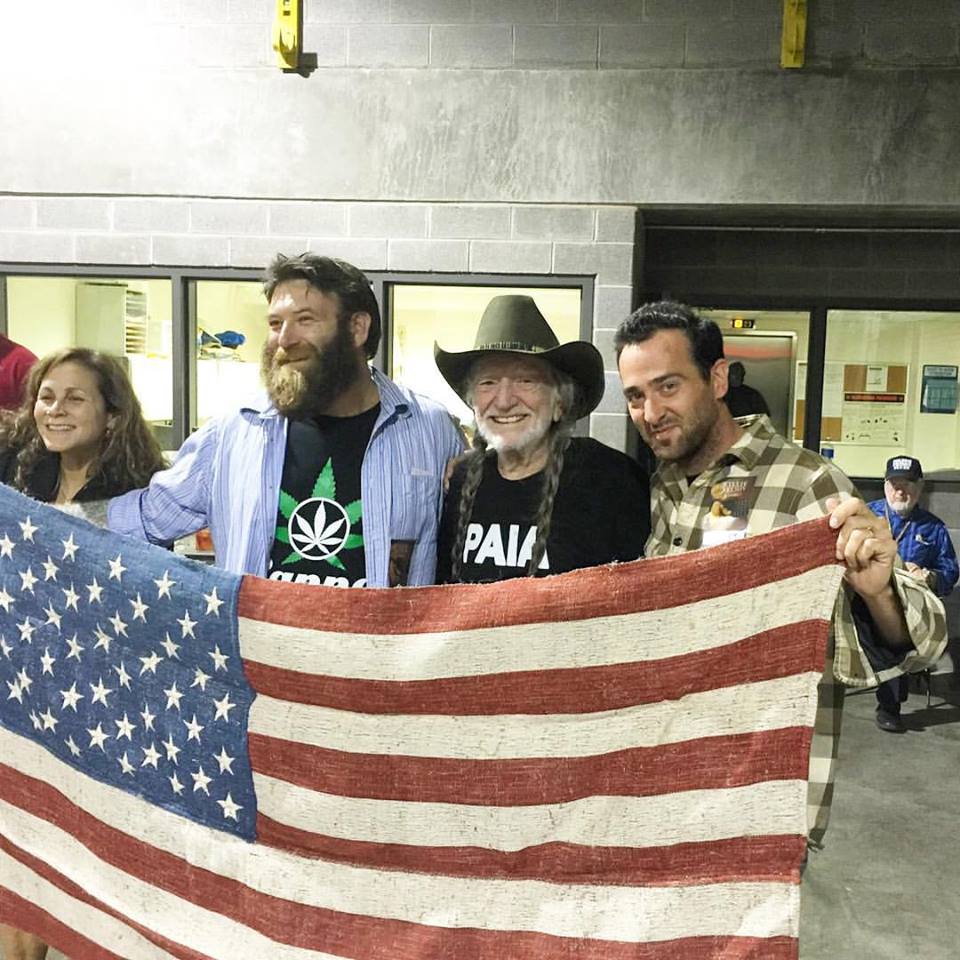Veterans often have a tough time assimilating into the mainstream workforce after serving on the front lines. Mike Lewis, a Kentucky farmer and former military member himself, knows this all too well.
“My brother Fred returned from his eighth tour with the Special Forces in Afghanistan, and he suffered a traumatic brain injury after being shot in the head,” Mike said. “I watched his family transition through a tough time. He went from being employed to having no income…from being a tough guy to not being able to provide for his family.”
Around the time of Fred’s return from combat, Mike came across a statistic stating that just over one million veterans and active duty military men and women – as well as their families – receive food stamps.
“Those two things combined were the catalyst for starting the Growing Warriors Project,” he says.
The mission of the Growing Warriors Project is to equip, assist, and train military veterans with the skills they need to produce high-quality, naturally grown produce for their families and communities.
“The military gives [veterans] these amazing leadership skills and the inability to quit. But then they come home and we say ‘Oh, you’re done now.’ But we forget we made leaders,” Mike says. “When we invest in soldiers as a nation, we are investing in them to be leaders in their communities and to represent us to the outside world—far beyond the span of their active service.”
“I’ve been very blessed, I’ve seen people become leaders while they are growing food and feeding themselves.”
Farming, he believes, is a great way for returning veterans to put their skills to work. The work of farming also brings them a sense of healing and purpose. Mike has seen it firsthand, noting the way his wounded brother seemed finally at ease when he got close to the earth, working in Mike’s garden.
Growing Warriors began in 2012 as a community garden and a corps of 10 families of veterans. Working in the garden they learned how to grow and preserve their own foods, through monthly, hands-on classes.
In their second year, Growing Warriors expanded and partnered with cities, hospitals, universities and other community-based organizations to extend their reach and help veterans who want to start farming full-time as a way to make a living.
Today, Growing Warriors trains veterans to grow good food on a 500-acre farm in Kentucky. And their influence has spread nationwide, with support networks and classes in multiple cities.
“My favorite thing is when I find out we have a group somewhere I didn’t know about. I call that ‘mission accomplished,’” says Mike proudly. “I’ve been very blessed, I’ve seen people become leaders while they are growing food and feeding themselves.”
Growing up in rural Maine, grocery stores were hard to come by. His family relied heavily on their small farm to feed themselves. Though he tried to distance himself from the agriculture community, he ended up coming back, which he jokingly blames on his wife.
“It’s my wife’s fault that I got into farming,” he laughs. “I was passing through Kentucky when I met her and I ended up staying, so I started looking for work. I took her with me to check out an organic farm and while driving back, she said she thought farming was sexy. I said ‘Forget everything else, I am going to become a farmer!’”
Mike and his wife were set on raising their future children on a farm. When his wife was pregnant with their first child, the financial realization of how expensive it is to raise a family hit Mike and he panicked. In what he calls “utter naiveté,” he went to their garden, collected 20 pounds of organic mixed greens, and brought them to the local elementary school. Intending to find a market for the good, healthy food he grew, he was instead met with blank stares and a heavy stack of tedious paperwork he would have to fill out before they could even consider buying food from him.
That didn’t make much sense to Mike, who was confused as to why an elementary school so close he could bike to, wouldn’t buy local, healthy food for their young students. He didn’t understand why frozen foods and imported fruits and veggies trumped his organic garden.
Since then, Mike has worked hard to enact and bolster legislation that strengthens independent family farmers and levels the playing field for farmers competing in a system that favors large-scale, corporate agriculture. He has spoken around the country, including in Washington, D.C., to fight for good food and the men and women who grow it.
“Hemp was a crop that built our nation. Betsy Ross’ first American flag was made of hemp. We have flags made in China now. That’s almost sacrilegious.”
His advocacy work has taken him on many adventures and has led to various projects. His most recent? Hemp farming.
While lobbying for a Food Safety Act in Kentucky, Mike impressed the state agriculture commissioner James Comer with his candor and passion. Comer invited Mike to come to his office, where he had a surprising pitch for Mike. Comer wanted Mike’s help on a new bill to end the prohibition on growing industrial hemp, which has been outlawed since the 1930s. More than 30 nations grow industrial hemp as an agricultural commodity. The United States is the only industrialized nation that does not allow industrial hemp production.
“I didn’t know anything about it,” says Mike. “But three days later, the commissioner called me to the White House to testify.”
According to the National Conference of State Legislatures, industrial hemp can be used to make food, fuel, fabric, plastics, construction materials, textiles, and paper; just to name a few items. There are more than 27,000 known uses for hemp, and advocates rally behind the crop as a way to revitalize the agriculture industry, while boosting local, rural economies. Unfortunately for hemp supporters, the U.S. has outlawed its commercial growth due to trace amounts of THC found in the plant, which is classified as an illegal drug under the Controlled Substances Act.
However, a provision in the 2014 federal Farm Bill now allows universities and state departments of agriculture to begin growing industrial hemp for limited purposes, mainly research. The law also requires grow sites to be certified and registered with the state. Twenty-two states around the country have enacted varying laws to support this bill, but rarely have they allowed farmers to grow hemp on their own land.
Mike got involved with industrial hemp politics because he was asked for help. In fact, he had zero plans of actually planting hemp seeds on his farm. He just wanted to help pass the bill and then go back to growing sweet potatoes, peppers and flax, among other things. But with the support of Commissioner Comer, he went from knowing nothing about hemp, to becoming one of the first U.S. farmers legally allowed to grow the crop on his farm. Mike was granted permission in a federal court, where Comer argued that the state of Kentucky didn’t have the infrastructure to grow hemp for research purposes, so Mike should do it for them.
“After getting approved, we put it in the ground and it just started growing. 18 months later, we are at the forefront of this industry,” Mike says about his farm’s successful hemp venture.
Hemp grows quickly—Mike’s first harvest grew 5-feet in just 46 days—and requires no pesticides or herbicides. He has 4-5 employees to help with the project, and 6-8 veterans working part-time. Mike and his team have worked hard to show what can be done with hemp, finding ways to make an array of hemp products that dozens of companies and designers have taken interest in.
“There is a disconnect because people think if hemp is illegal, it must be illegal for a reason… that it’s a gateway to grow marijuana,” Mike says, in regards to one of the biggest misconceptions surrounding the controversial plant. “It’s pretty easy to clear that up once we talk to people about what we are doing, and they watch us braid a rope out of hemp.”
The farm’s first big project, thanks in part to a grant from Patagonia (a popular retailer who makes clothing out of hemp-textiles), is the production of American flags from veteran-grown hemp. As a thank you for Farm Aid’s work, the first flag was flown at the Farm Aid 30 concert and presented to Farm Aid president Willie Nelson. This month, that same flag flew over the U.S. Capitol on Veteran’s Day while Mike and his fellow hemp farmer Joe Schroeder spoke at the National Press Club about the promise of hemp production for family farmers.
At the event on Veteran’s Day, Mike said, “Hemp was a crop that built our nation. Betsy Ross’ first American flag was made of hemp. We have flags made in China now. That’s almost sacrilegious.”
Although industrial hemp production isn’t a get-rich-quick venture for family farmers (something Mike wants people to understand), recent reports have projected the hemp industry will be worth a staggering $2 billion by 2020. Mike hopes to encourage small batch, quality hemp products that are bought and sold at fair prices that return a value to their community.
“This is a relatively new industry,” he says. “We still have time to build an infrastructure and economy, and we are hoping to carve out a spot before big corporations get in on the action.”
Mike’s work seems never-ending. After all, fighting for family farmers, helping veterans learn to grow good food, and leading the hemp revolution is no part-time job. He lives and breathes agriculture, but he wouldn’t have it any other way.
“I spent a better part of my life being ashamed of the way I grew up and trying to get as far away from the farm as possible, trying to get as wealthy and affluent as I could. But now, I think we had it made and I am trying to get back to that. Full circle.”
Learn more about the Growing Warriors project